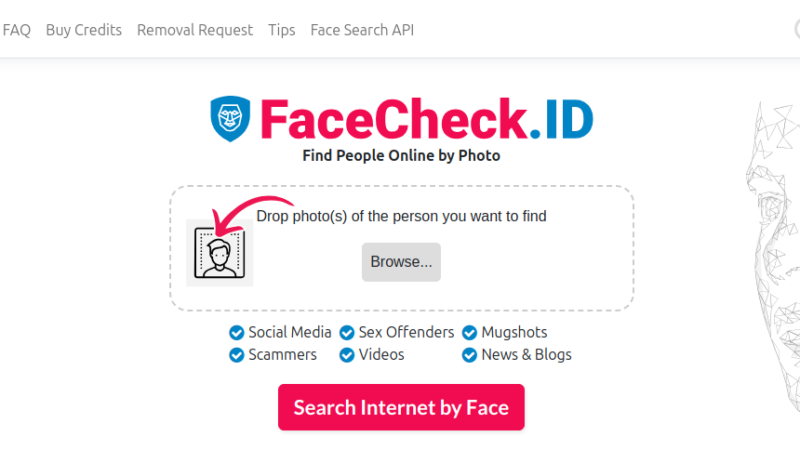Cryptocurrency Regulations: A Global Perspective

Introduction
Cryptocurrency is a digital or virtual currency that uses cryptography for secure financial transactions. Cryptocurrencies are decentralized systems that allow for secure and transparent transfer of value between parties without the need for a central authority, such as a bank or government. Cryptocurrencies use blockchain technology, which is a decentralized and immutable record of transactions that is maintained by a network of computers on the internet. Some well-known cryptocurrencies include Bitcoin, Ethereum, and Litecoin. Cryptocurrencies can be used to buy and sell goods and services, as well as to store and transfer value.
The regulation of cryptocurrency varies greatly around the world. In some countries, cryptocurrency is heavily regulated and may even be banned, while in other countries it is largely unregulated and freely traded.
In the United States, the regulation of cryptocurrency falls under the purview of several different agencies, including the Securities and Exchange Commission (SEC) and the Internal Revenue Service (IRS). The SEC has taken action against some cryptocurrency issuers for violating securities laws and has also issued guidance on the regulation of cryptocurrency-related investments. The IRS treats cryptocurrency as property and requires taxpayers to report any gains or losses on their tax returns.
In the European Union, the European Securities and Markets Authority (ESMA) has issued warnings about the risks of investing in cryptocurrency and has also guided the regulation of cryptocurrency-related activities. However, the regulation of cryptocurrency within the EU varies from country to country, with some countries taking a more permissive approach and others taking a more restrictive approach.
In Asia, the regulation of cryptocurrency varies widely. Some countries, such as China and South Korea, have taken a strict approach to cryptocurrency regulation and have banned or heavily restricted its use. Other countries, such as Japan and Singapore, have taken a more permissive approach and have established a framework for the regulation of cryptocurrency-related activities.
The Regulatory Landscape in the United States
The Securities and Exchange Commission (SEC) is a U.S. government agency that is responsible for regulating the securities industry, including the issuance and trading of securities. In the context of cryptocurrency, the SEC has taken several actions to address potential violations of securities laws involving cryptocurrency.
One of the primary ways in which the SEC has regulated cryptocurrency is by taking action against issuers of initial coin offerings (ICOs) that it determines are unregistered securities offerings. The SEC has brought enforcement actions against several ICO issuers for violating securities laws and has also issued guidance on the application of securities laws to ICOs.
In addition to its enforcement actions, the SEC has also issued guidance on the regulation of cryptocurrency-related investments. In particular, the SEC has made it clear that cryptocurrency-related investment products, such as exchange-traded funds (ETFs) and mutual funds, are subject to the same legal and regulatory requirements as other securities.
In the United States, the regulation of cryptocurrency is not limited to the federal level. Some states have also enacted laws and regulations related to cryptocurrency.
One area where state-level regulation of cryptocurrency has been particularly active is in the licensing and registration of cryptocurrency businesses. For example, several states, including New York and Wyoming, have enacted specific licensing requirements for businesses that engage in cryptocurrency-related activities, such as exchange services or money transmission.
State-level regulation of cryptocurrency has also extended to consumer protection. Some states have enacted laws to protect consumers from fraud and other abuses in the cryptocurrency market. For example, California has enacted a law that requires cryptocurrency businesses to disclose their policies on the protection of consumers’ personal information.
In the United States, the Internal Revenue Service (IRS) is the federal agency responsible for collecting taxes and enforcing tax laws. The IRS has issued guidance on the taxation of cryptocurrency transactions.
According to the IRS, cryptocurrency is treated as property for tax purposes, rather than as a currency. This means that any gain or loss from the sale or exchange of cryptocurrency is treated as a capital gain or loss, and must be reported on a taxpayer’s tax return. In addition, taxpayers who receive cryptocurrency as payment for goods or services must report the fair market value of the cryptocurrency as income on their tax return.
The IRS has also issued guidance on the reporting requirements for cryptocurrency transactions. For example, taxpayers who engage in cryptocurrency transactions with an aggregate value of more than $20,000 or who have more than 200 transactions in a tax year are required to report their transactions on Form 8949, Sales and Other Dispositions of Capital Assets.
European Union Regulation of Cryptocurrency
The European Central Bank (ECB) is the central bank of the European Union and is responsible for the monetary policy of the eurozone, which consists of the 19 member states that have adopted the euro as their currency. The ECB has taken a cautious approach to cryptocurrency and has issued several statements on the risks and potential benefits of cryptocurrency.
In general, the ECB has emphasized the potential risks associated with cryptocurrency, including the high price volatility, the lack of regulatory oversight, and the potential for fraud and other illicit activities. The ECB has also pointed out that cryptocurrency is not legal tender and is not backed by any central authority, which means that it carries additional risks for investors.
However, the ECB has also acknowledged that cryptocurrency and blockchain technology has the potential to bring about significant changes in the financial industry and create new opportunities for innovation and growth. As a result, the ECB has called for a balanced approach to the regulation of cryptocurrency that takes into account both the risks and the potential benefits.
The European Securities and Markets Authority (ESMA) is an independent EU agency that is responsible for promoting the stability and integrity of the financial system in the European Union. In the context of cryptocurrency, ESMA has issued several statements and guidelines on the regulation of cryptocurrency-related activities.
One of the main roles of ESMA regarding cryptocurrency is to provide guidance and advice to national regulators and policymakers on the appropriate regulatory approach to cryptocurrency. ESMA has issued several warnings to investors about the risks of investing in cryptocurrency, including the high price volatility, the lack of regulatory oversight, and the potential for fraud and other illicit activities.
In addition to its role in providing guidance and advice, ESMA also has the authority to adopt binding technical standards and regulatory technical standards on the regulation of cryptocurrency-related activities. For example, ESMA has adopted technical standards on the reporting of crypto-assets by investment firms and the requirements for the authorization and supervision of digital currency exchanges.
Within the European Union, the regulation of cryptocurrency varies from country to country. Some EU member states have taken a more permissive approach to cryptocurrency and have established a framework for the regulation of cryptocurrency-related activities, while others have taken a more restrictive approach.
For example, some EU member states, such as Malta and Gibraltar, have enacted specific legislation that provides a legal framework for the regulation of cryptocurrency-related activities, such as exchange services or money transmission. These countries have established themselves as attractive destinations for cryptocurrency businesses due to their more permissive regulatory environments.
Other EU member states, such as France and Germany, have taken a more cautious approach to cryptocurrency regulation. These countries have implemented more stringent requirements for the regulation of cryptocurrency-related activities, and have also issued warnings to investors about the risks of investing in cryptocurrency.
Cryptocurrency Regulation in Asia
The regulation of cryptocurrency varies widely across Asia. Some major Asian countries, such as China and South Korea, have taken a strict approach to cryptocurrency regulation and have banned or heavily restricted its use. Other countries, such as Japan and Singapore, have taken a more permissive approach and have established a framework for the regulation of cryptocurrency-related activities.
In China, the central government has banned initial coin offerings (ICOs) and cryptocurrency exchanges and has also taken steps to block access to cryptocurrency trading platforms. Despite these measures, cryptocurrency continues to be traded on an informal basis in China.
In Japan, the government has taken a more permissive approach to cryptocurrency and has established a framework for the regulation of cryptocurrency-related activities. In 2017, the Japanese government passed a law recognizing Bitcoin as a legal method of payment and has also established a licensing regime for cryptocurrency exchanges.
In South Korea, the government has taken a more cautious approach to cryptocurrency regulation. While cryptocurrency is not banned in South Korea, the government has implemented several measures to restrict its use, including a ban on anonymous cryptocurrency trading and a requirement for cryptocurrency exchanges to implement strict anti-money laundering measures.
In terms of regional organizations, the Association of Southeast Asian Nations (ASEAN) has not taken a formal position on the regulation of cryptocurrency. However, individual member states of ASEAN have taken various approaches to cryptocurrency regulation, with some countries taking a more permissive approach and others taking a more restrictive approach.
Other Regions
Cryptocurrency regulation in Latin America
The regulation of cryptocurrency in Latin America varies widely from country to country. Some Latin American countries, such as Brazil and Argentina, have taken a more permissive approach to cryptocurrency and have established a framework for the regulation of cryptocurrency-related activities. Other countries, such as Bolivia and Ecuador, have taken a more restrictive approach and have banned cryptocurrency altogether.
In Brazil, the central bank has issued warnings to investors about the risks of investing in cryptocurrency but has not taken any formal action to regulate cryptocurrency. However, the Brazilian Securities and Exchange Commission (CVM) has issued guidelines on the regulation of initial coin offerings (ICOs) and has also taken action against some ICO issuers for violating securities laws.
In Argentina, the central bank has issued warnings to investors about the risks of investing in cryptocurrency but has not taken any formal action to regulate cryptocurrency. However, the Argentine Securities and Exchange Commission (CNV) has issued guidelines on the regulation of ICOs and has also taken action against some ICO issuers for violating securities laws.
In contrast, both Bolivia and Ecuador have taken a more restrictive approach to cryptocurrency and have banned it altogether. In Bolivia, the central bank has issued a blanket ban on the use of cryptocurrency, while in Ecuador, the government has banned the use of cryptocurrency and has also established its own digital currency, the “Sistema de Dinero Electrónico,” which is backed by the central bank.
Cryptocurrency regulation in Africa
The regulation of cryptocurrency in Africa varies widely from country to country. Some African countries, such as South Africa and Ghana, have established a framework for the regulation of cryptocurrency-related activities, while others, such as Morocco and Algeria, have banned cryptocurrency altogether.
In South Africa, the South African Reserve Bank (SARB) has issued guidelines on the regulation of cryptocurrency-related activities, including the issuance of initial coin offerings (ICOs) and the operation of cryptocurrency exchanges. The SARB has also established a sandbox for fintech firms, including cryptocurrency businesses, to test their products and services in a regulatory-compliant environment.
In Ghana, the Bank of Ghana (BoG) has issued a statement on the regulation of cryptocurrency, stating that it does not recognize cryptocurrency as legal tender and that it is not subject to regulatory oversight. However, the BoG has also established a fintech task force to study the potential risks and benefits of cryptocurrency and to recommend appropriate regulatory measures.
In contrast, both Morocco and Algeria have taken a more restrictive approach to cryptocurrency and have banned it altogether. The Moroccan central bank has issued a blanket ban on the use of cryptocurrency, while the Algerian government has banned the use of cryptocurrency and has also criminalized the possession and use of cryptocurrency.
Cryptocurrency regulation in the Middle East
The regulation of cryptocurrency in the Middle East varies widely from country to country. Some Middle Eastern countries, such as the United Arab Emirates (UAE) and Israel, have established a framework for the regulation of cryptocurrency-related activities, while others, such as Saudi Arabia and Iran, have taken a more restrictive approach.
In the UAE, the central bank has issued guidelines on the regulation of cryptocurrency-related activities, including the operation of cryptocurrency exchanges and the issuance of initial coin offerings (ICOs). The UAE has also established a fintech sandbox for businesses, including cryptocurrency businesses, to test their products and services in a regulatory-compliant environment.
In Israel, the central bank has issued a statement on the regulation of cryptocurrency, stating that it does not recognize cryptocurrency as legal tender and that it is not subject to regulatory oversight. However, the Israeli Securities Authority (ISA) has issued guidelines on the regulation of ICOs and has also taken action against some ICO issuers for violating securities laws.
In contrast, both Saudi Arabia and Iran have taken a more restrictive approach to cryptocurrency. The Saudi Arabian Monetary Authority (SAMA) has issued a blanket ban on the use of cryptocurrency, while the Iranian government has banned the use of cryptocurrency and has also criminalized the possession and use of cryptocurrency.
Conclusion
The regulation of cryptocurrency varies widely around the world, with some countries taking a more permissive approach and establishing a framework for the regulation of cryptocurrency-related activities, while others have taken a more restrictive approach and have banned or heavily restricted the use of cryptocurrency.
In the United States, the regulation of cryptocurrency falls under the purview of several different agencies, including the Securities and Exchange Commission (SEC) and the Internal Revenue Service (IRS). The SEC has taken action against some cryptocurrency issuers for violating securities laws and has also issued guidance on the regulation of cryptocurrency-related investments. The IRS treats cryptocurrency as property and requires taxpayers to report any gains or losses on their tax returns.
In the European Union, the European Securities and Markets Authority (ESMA) has issued warnings about the risks of investing in cryptocurrency and has also guided the regulation of cryptocurrency-related activities. However, the regulation of cryptocurrency within the EU varies from country to country, with some countries taking a more permissive approach and others taking a more restrictive approach.
In Asia, the regulation of cryptocurrency varies widely. Some countries, such as China and South Korea, have taken a strict approach to cryptocurrency regulation and have banned or heavily restricted its use. Other countries, such as Japan and Singapore, have taken a more permissive approach and have established a framework for the regulation of cryptocurrency-related activities.
Overall, the regulation of cryptocurrency has a significant impact on the adoption and use of cryptocurrency around the world. In countries where cryptocurrency is heavily regulated or banned, the use of cryptocurrency is likely to be limited, while in countries with a more permissive regulatory environment, the adoption and use of cryptocurrency are likely to be more widespread.






